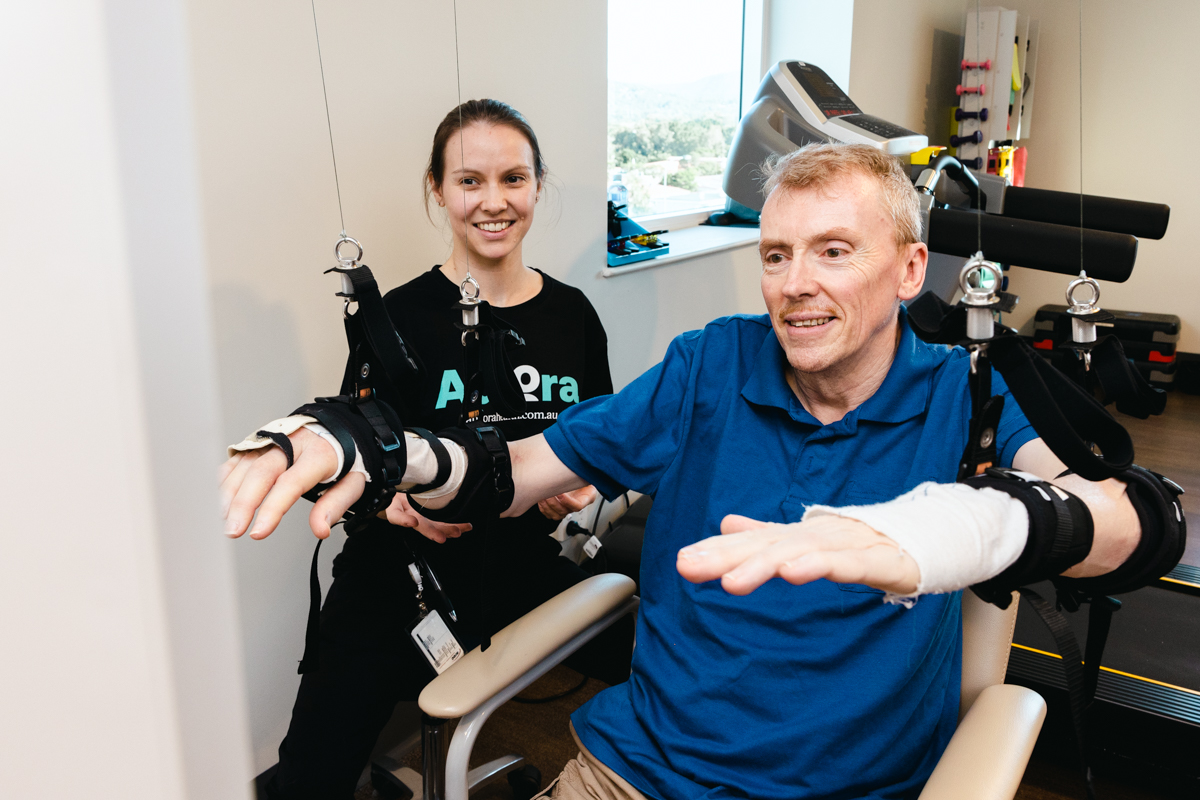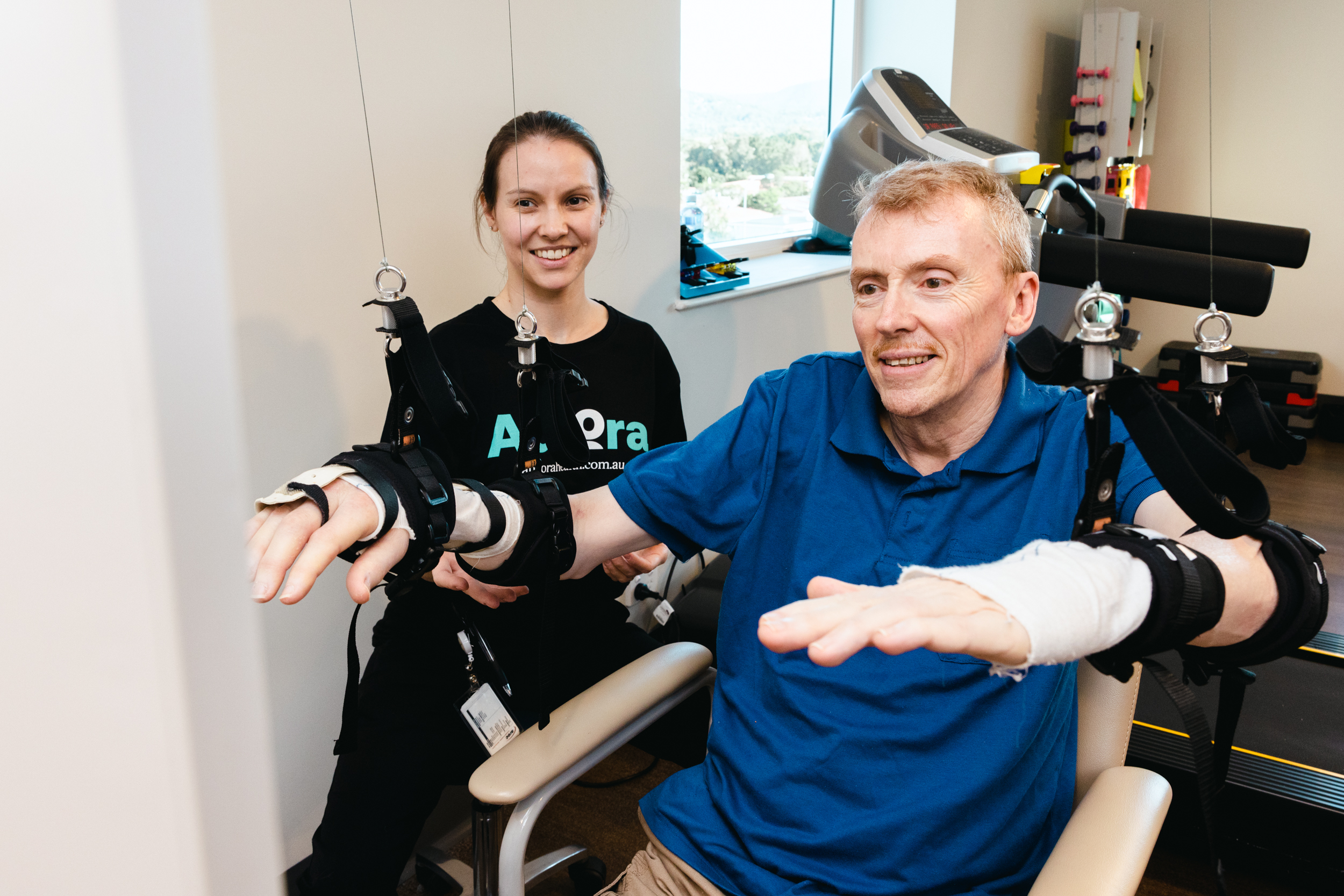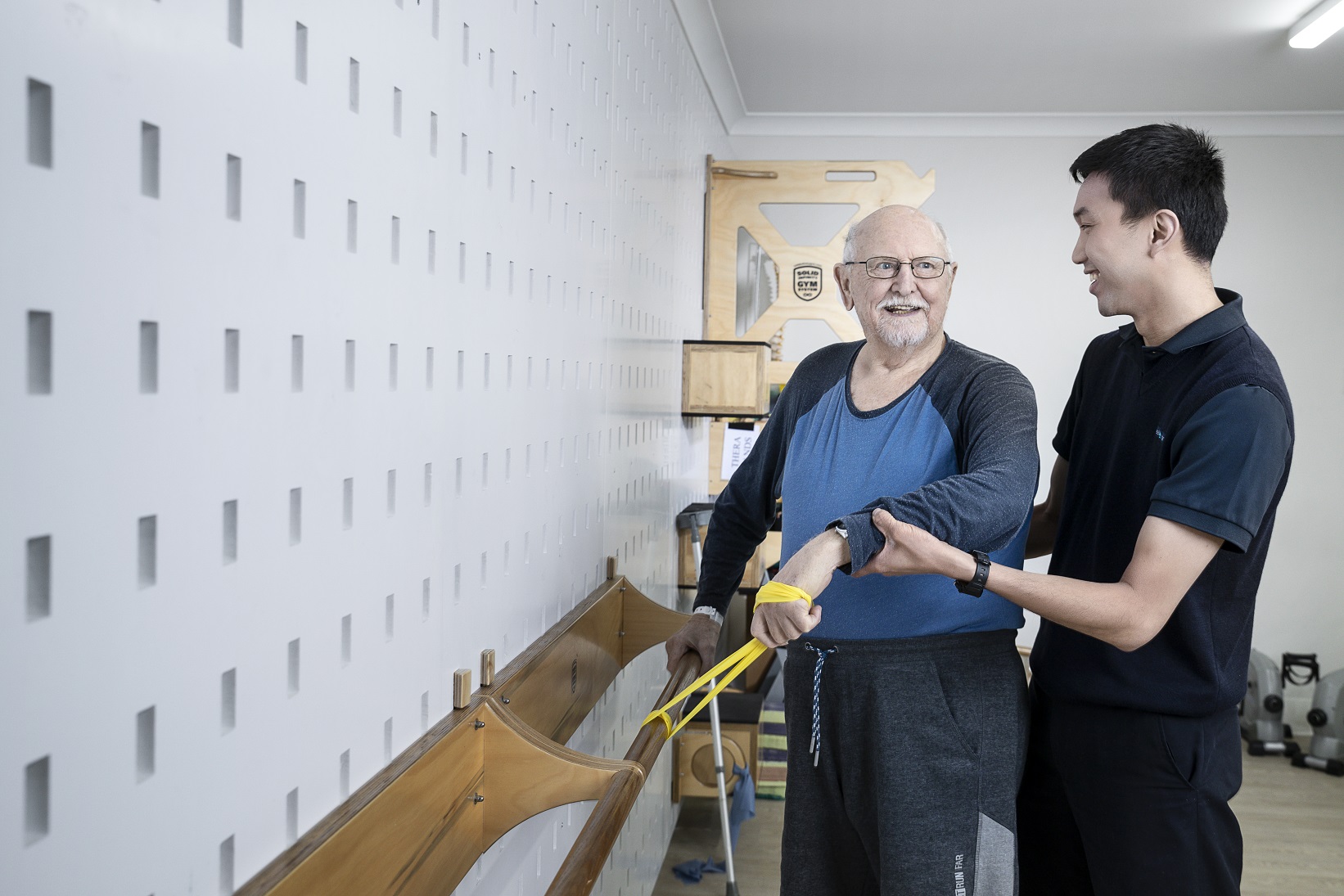
Author
Summary
The six, high-tech rehabilitation machines, developed in Austria are being offered to patients at Robina Private Hospital until 15 June 2021, with a view to officially introducing a full-scale program prior to the end of 2021.
Healthe Care chief executive officer of speciality hospitals, Julia Strickland-Bellamy, said the inclusion of the robotic equipment at Robina Private Hospital comes following the successful implementation of robotic rehabilitation at Healthe Care’s Eden Private Hospital on the Sunshine Coast, late last year.
“The introduction of robotic rehabilitation at Eden Private Hospital has made the facility the most technically advanced rehabilitation centre in South-East Queensland and attracted patients from across the state.
“To date 1500 patients at Eden Private Hospital have benefitted from the robotic therapy, which is scientifically proven to increase patient outcomes when combined with traditional therapy, in comparison to participating in traditional therapy alone.
“In addition to Eden Private, we have successfully introduced the robotic therapy at Toronto Private Hospital in NSW and anticipate similar success through the eventual introduction of robotics at all of Healthe Care’s rehabilitation hospitals across Australia.”

The innovative equipment uses robotics, sensors, virtual reality and gamification to engage patients physically and cognitively, allowing for more intensive rehabilitation.
It is used to benefit a wide range of adult and adolescent rehabilitation patients, helping to improve functional deficits associated with stroke and other neurological conditions such as multiple sclerosis, cerebral palsy and Parkinson's, as well as musculoskeletal and spinal conditions.
Robina Private Hospital chief executive officer Kenny Craig said the technology would be welcomed by Gold Coast patients looking to undertake intensive rehabilitation close to home, or to enhance results.
“Robotic technology is the future of healthcare, so bringing it into rehabilitation is an important step in advancing the way we help people improve function and recover from medical conditions and surgeries,” he said.
“The technology is already used extensively internationally, particularly in Europe, so there is a strong evidence-base to support the benefits it offers in rehabilitation.
“We are continually investing in the latest state-of-the-art equipment to ensure we remain at the forefront of healthcare innovation to enhance the experience and outcomes for our patients, and look forward to hearing their feedback during the robotic rehabilitation trial.”

Robina Private Hospital’s Rehabilitation Physician, Dr Jom Jiao, said robotic rehabilitation was designed to further enhance engagement and challenge patients to work towards their goals.
“The sensory and interactive nature of the technology is enjoyable and aids in motivation, keeping patients interested for longer and helping them to engage in a higher volume of therapy within a similar or reduced timeframe,” he said.
“It also provides real-time feedback on activity and progress, connecting information across multiple devices, so patients can see how they are tracking in a graphic way to further keep them motivated.

Dr Jiao said the robotic rehabilitation program would be trialled in conjunction with rehabilitation focused on functional retraining for optimal results.

